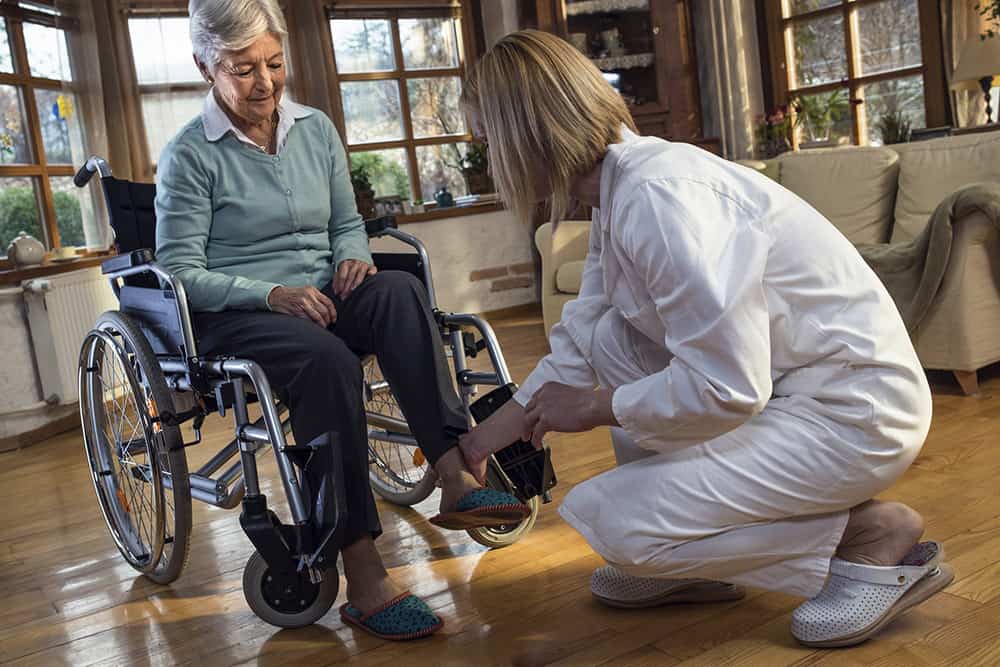Industry powerchair retailers and suppliers welcome expansion of personal health budgets

With over 40,000 people already using personal health budgets in England, the Department of Health and Social Care has announced plans to roll out the initiative to up to 200,000 people by 2024, providing those with long-term conditions more control over the equipment they use to manage their conditions.
The scheme will include a wider rollout of the Personal Wheelchair Budget scheme as well, encouraging more wheelchair users to engage with the private market to access wheelchairs not traditionally available through the NHS.
The Department of Health and Social Care announced that the budgets will be available to wheelchair users, people who access aftercare services under the Mental Health Act, people with ongoing mental health needs, veterans, autistic people, people wit learning disabilities and people receiving adult social care support.
The Personal Wheelchair Budget scheme to provide individuals more control over their allowances and desired wheelchairs has been welcomed by many in the industry, helping to address the issue of strained wheelchair services, as well as increasing choice for individuals.
Speaking to THIIS, Matthew James, Director of specialist powerchair provider and distributor Precision Rehab, said: “We believe this system would offer a greater choice of wheelchair for people that would like to purchase a wheelchair outside of the NHS. This could be because their postural needs or requirements could not be met by an NHS wheelchair, people can use their budget on a powered wheelchair of their choice or their therapist’s choice to suit their needs and lifestyle.”
Motus Medical’s co-founder Chris Taylor, a provider of high spec wheelchairs and powerchairs, also spoke optimistically about the opportunity of Personal Wheelchair Budgets.
“I can only see this as a benefit to both the dealer market and the end-users as it’s freedom of choice as what’s better that that?” he commented.
Discussing the positive opportunities afford to end-users, Simon Tempest, Head of Mobility at Ottobock UK, said: “I believe personal wheelchair budgets could have a positive effect on the market when individuals may have unmet needs.
“An example would be when a seat riser option is used on a power wheelchair for reaching high cupboards or transferring to different seat surfaces. This option is not always available through state funding but with the Personal Wheelchair Budget there may be more flexibility in the provision. This could then enable individuals to access this option and therefore enhance their level of independence.”
Personal health budgets are planned and agreed between individuals and clinicians, giving people greater choice, flexibility and control over their health and care support, and, according to the Department of Health and Social Care, have been shown to join up health and social care services in local areas – reducing pressure on emergency care.
Minister for Care Caroline Dinenage said: “I’ve seen first-hand how personal health budgets can give people a new lease of life, granting them the ability to enjoy their lives to the full. These budgets help to join up health and social care services, improving people’s experiences and outcomes whilst ensuring value for money for taxpayers.
“We are therefore extending access so many more people can benefit, a key part of our NHS Long Term Plan which will see personalised care become the norm for millions more.”
The Government says it carried out a consultant in 2018 relating to extending the Personal Health Budget scheme, with nine out of 10 supporting the proposal.
Increasing access to personal health budgets is part of the NHS’ Long Term Plan, which aims to extend personalised care to two and a half million people by 2024. This will partly be achieved through personal health budgets and social prescribing, which is when people are referred by their GPs to local community or voluntary activities.
James Sanderson, NHS England Director of Personalised Care, added: “Dealing with long-term health problems means moving away from a one-size-fits-all approach, and towards more tailored care, with 1,000 social prescribing workers in GP surgeries, closer working with voluntary groups and most importantly asking patients what support they need to live independently and well.”


